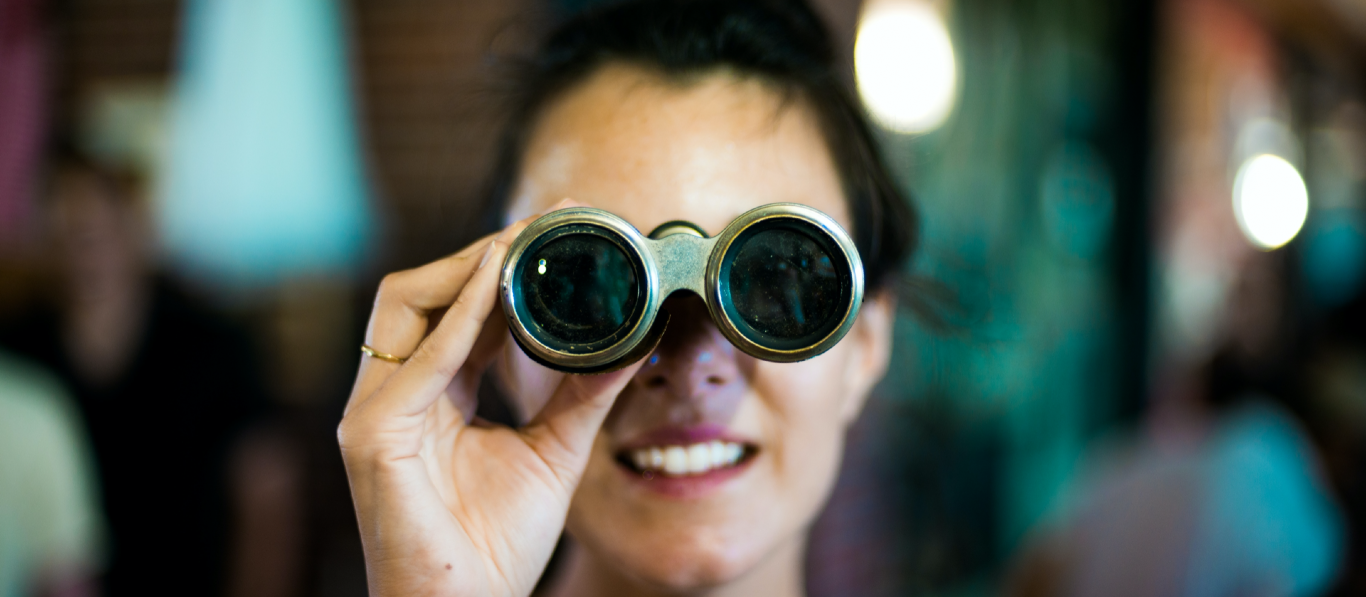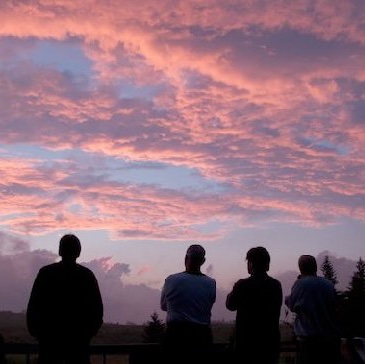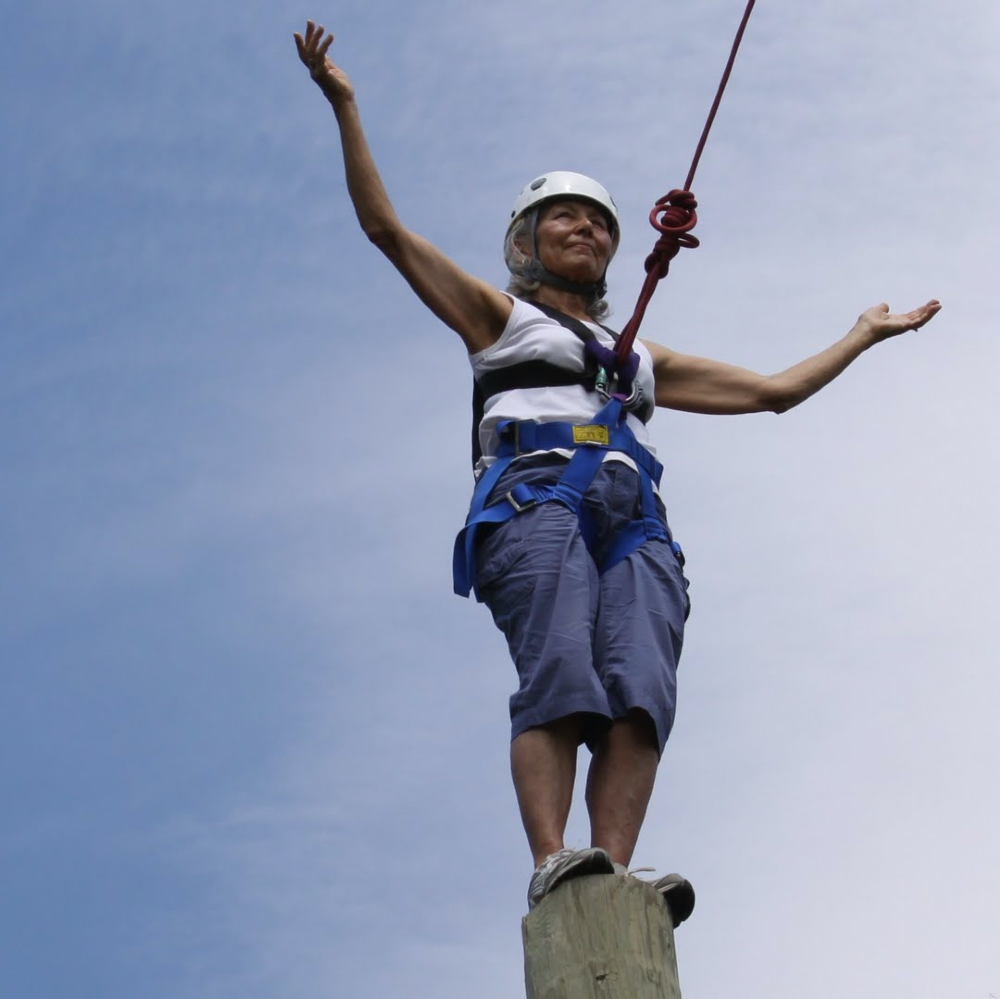Journey Challenge - BECOME CAPABLE OF THE UNEXPECTED

“We must be willing to let go of the life that we have planned
So as to have the life that is waiting for us.”
– Joseph Campbell
BECOME CAPABLE OF THE UNEXPECTED
So often we rely on our expectations to gain a sense of security and control – in a world that is often beyond our control. Clinging to sameness, fixedness and control to feel safe can have the opposite effect of making us more anxious. We often expect and project the worst when we face the unknown.
We can learn to open ourselves up to the realization that the unknown can bring unexpected goodness and meaningful experiences, especially when we are most vulnerable.
We must remain open to outcomes that are the opposite of what we expect and fear most – that goodness often awaits in our time of need.
HERE’S THE CHALLENGE
Michael Meade says that the only reason to venture forth on an authentic hero’s journey is ‘to become other than what you already are’. On one hand, this makes perfect sense. But on the other, we find that we are deeply attached to the way we have been.
We find security in having our identities, our sense of self, fixed and known to us. We cling to our successes, and develop fears about being unsuccessful in our next venture. We can also cling to our failures, and become identified with these as well. Then we are constantly over-exerting our will to prove ourselves and redeem ourselves, or the opposite – we give up quickly, and are ready to be resigned in a fatalistic way, at the first sign of trouble or struggle.
In addition, we carry unconscious (and therefore very powerful) beliefs about who we are as people, setting up a kind of ‘glass ceiling’ for what we believe to be possible, or what we believe we are capable of. These pre-set and un-examined assumptions, expectations and beliefs hold tremendous power over us, and distort the lens of perception through which we see our reality.
The challenge we face here is to begin to question our un-examined assumptions and expectations, and become less sure of them. Then the next challenge is to imagine what is waiting for us beyond what we typically expect or assume. This is not easy to do. It takes real psychological work and requires from us a sustained effort at becoming capable of the unexpected.
We will have to become capable of the unexpected in two primary ways:
1. We will need to be able to allow the unexpected to come from us.
2. We will need to be able to allow the unexpected to come to us.
Again, simple in concept, difficult in realization. But with practice, we can become more spontaneous, and more available to the actualities and possibilities that arise, once we can allow ourselves to try on new ways of being and behaving.
HERE’S YOUR TOOLS
1. Actively practice calling an unquestioned or un-examined belief into question.
Look more deeply within to a fundamental and long established way of thinking or believing about yourself. Can you humble yourself enough to begin to be less certain that your limiting or negative belief may not be true? At least, not in the way you’ve carried it. Can you bear the anxiety, the uneasiness and the vulnerability required to become open to a new possibility, beyond your fixed perception of reality?
2. Recognize and acknowledge that you have carried a life-negating orientation, a hostile imagining that you have either held against yourself or projected onto the world at large.
This is not easy to do. It requires humility and self-forgiveness, and it requires a genuine wish for the outcomes in our lives to be different. But at the same time, this can be tremendously liberating and freeing.
3. Actively challenge this belief or expectation.
Here is where things now get interesting. Actively allow for encounters to play out, exchanges with others to happen, that will be beyond or other than what you expect. Witness how things may now actually go better than you would typically expect, even though you yourself may feel more uncomfortable and enter even more into the unknown.
Make a note in your journal of what surprised you, and what was unexpected – either in relation to your own capacities, or in the ways goodness and life-giving exchanges began to take place, where you could not foresee them happening before.
Become More Capable of The Unexpected
Navigating the Unknown – Calling One’s Self Into Question
An Essay by Michael Mervosh
Based on the Work of Bill Cornell
“Self-Examination in Psychotherapy & Psychoanalysis”

Inspiration
A Poem by David Whyte
Sometimes it takes
a great sky
to find that
first, bright
and indescribable
wedge of freedom
in your own heart.
Sometimes with
the bones of the black
sticks left when the fire
has gone out
someone has written
something new
in the ashes of your life.

Reflection
A passage from Philip Slater, from his book Earthwalk.
A patient in psychotherapy does not literally return to childhood to unlearn the self-destructive pattern he evolved in growing up, although he might engage in much regressive experimentation in order to undo that negative learning. What is essential is that he be able to relinquish his attachment to his pathway – be able to say to himself, “I have wasted X years in a painful and useless pursuit; this is sad, but I know have an opportunity to try another approach.”
This is hard for people to do. There is a strong temptation to rationalize our wrong turnings as a necessary part of development (“it taught me discipline”), or to deny that we participated fully in them (“that was before I became enlightened”).
Giving up these two evasions always leads to despair, but as Alexander Lowen points out, despair is the only cure for illusion. Without despair we cannot transfer our allegiance toreality – it is a kind of mourning period for our fantasies. Some people do not survive this despair, but no major change within a person can occur without it.

Action
Practice Becoming More Capable of the Unexpected
1. Purposefully choose to place yourself into a situation or circumstance, an exchange or encounter, or in a conversation where you intentionally suspend your expectations for a negative outcome.
2. Stay focused on what is within your control – your own thinking, and your own speaking, and your own actions. Try on a do-able way of thinking, speaking or doing that is beyond what is typical for you.
3. Notice what both comes from you, and what unfolds towards you, that is beyond what you would have been certain about, or expected.
4. Acknowledge your growing capacity to be engaged with the unexpected, and feel into the empowering feeling that can come from this practice.
